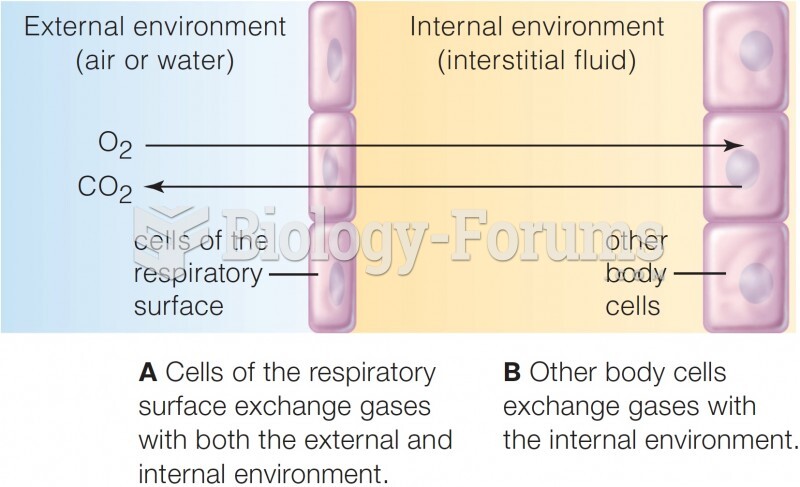|
|
|
The training of an anesthesiologist typically requires four years of college, 4 years of medical school, 1 year of internship, and 3 years of residency.
Acute bronchitis is an inflammation of the breathing tubes (bronchi), which causes increased mucus production and other changes. It is usually caused by bacteria or viruses, can be serious in people who have pulmonary or cardiac diseases, and can lead to pneumonia.
Hypertension is a silent killer because it is deadly and has no significant early symptoms. The danger from hypertension is the extra load on the heart, which can lead to hypertensive heart disease and kidney damage. This occurs without any major symptoms until the high blood pressure becomes extreme. Regular blood pressure checks are an important method of catching hypertension before it can kill you.
After 5 years of being diagnosed with rheumatoid arthritis, one every three patients will no longer be able to work.
Symptoms of kidney problems include a loss of appetite, back pain (which may be sudden and intense), chills, abdominal pain, fluid retention, nausea, the urge to urinate, vomiting, and fever.
 Forms of primary adult glaucoma: (a) in chronic open-angle glaucoma, the anterior chamber angle rema
Forms of primary adult glaucoma: (a) in chronic open-angle glaucoma, the anterior chamber angle rema
 Forensic anthropologists working at a temporary morgue following the recovery of remains from a floo
Forensic anthropologists working at a temporary morgue following the recovery of remains from a floo





